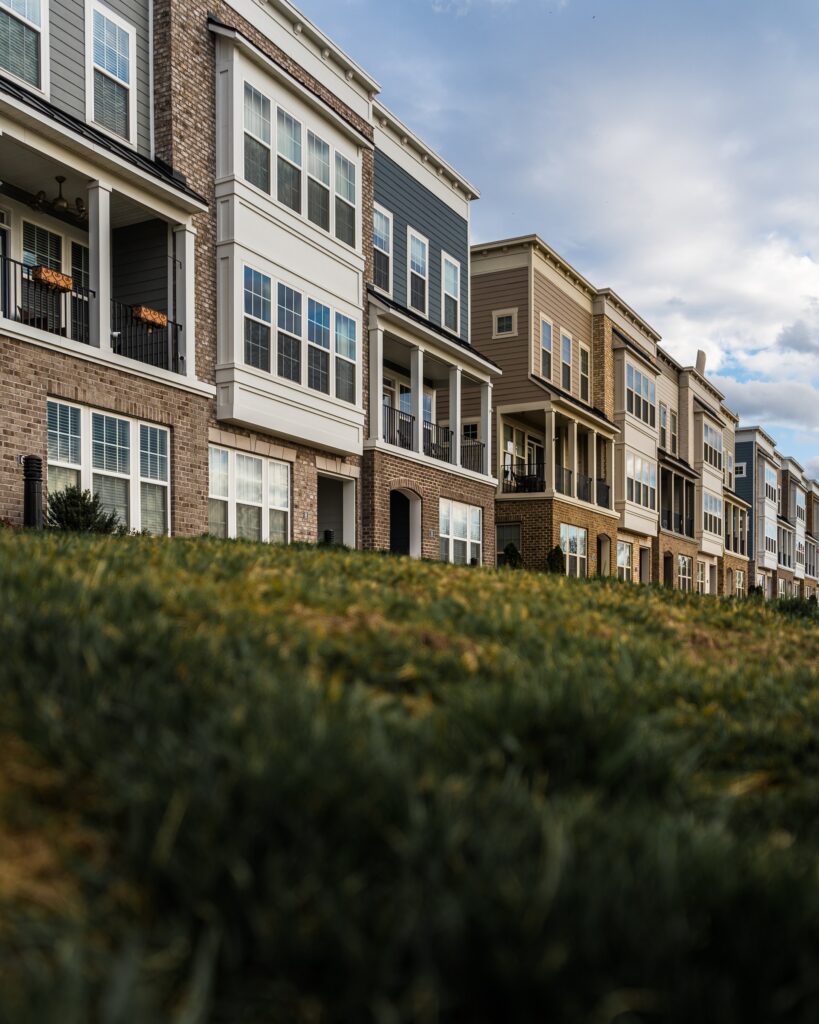
Investing in real estate allows you to add properties to your portfolio that you can rent out or hold as their values increase. Even when the economy is in a downturn, real estate investments typically perform well. When you’re considering investing in real estate, there are two types that you can purchase, which include residential and commercial properties. Regardless of the type of building you wish to buy, you’ll be tasked with navigating legal and financial issues before you begin renting out the property.
Before you invest in real estate, it’s important that you understand the distinction between commercial and residential properties. Within these two real estate categories are many different types of properties that can serve unique purposes. If you find a high-quality commercial property but would prefer renting out residential real estate, there are a couple of options at your disposal. This guide answers the question “Can you rent out commercial property as residential?”.

Understanding Commercial vs. Residential Properties
Before finding out if commercial property can be rented out as residential, you need to know what these two property types are. Commercial properties are used by businesses to perform standard operations, which can involve anything from manufacturing items to selling groceries. While this designation can be used to describe land that generates a profit, it mainly refers to buildings where companies do business. Property designations determine how a transaction is financed, how the property is taxed, and what the zoning laws are.
There are many different types of commercial properties, which include everything from grocery stores and malls to manufacturing shops and office buildings. When you invest in a commercial building, you’ll likely be able to rent out space to multiple businesses. Commercial leases often last for at least two years but can exceed 10.
Residential properties are living spaces that provide people with shelter and comfort. These properties are mainly meant for personal use. Keep in mind that residential properties can take many different forms. Along with standalone homes, you can also invest in condos and apartment buildings. The various types of residential properties that are available to you include the following:
- Single-family homes
- Multifamily apartment buildings
- Semi-detached homes
- Townhouses
- Condominiums
- Tiny homes
- Co-ops
- Manufactured homes
Single-family homes can also come in different types, which include bungalows, cottages, villas, and estate homes. Commercial and residential properties often have different zoning requirements. Commercial zoning determines how the land and buildings that belong to businesses can be used. There are special limits for:
- Building height
- Noise levels
- Parking spaces
- Setback from roadways
- Waste management
- Number of businesses in a specific area
- Heavy vehicle access
- Signage
- Air quality
Residential zones are set aside for single-family homes and neighborhoods. While certain types of commercial buildings can be situated within a residential zone, there’s a limit on the number of non-residential structures that can be included in the area.

Legal Considerations and Zoning Laws
Zoning laws are in place throughout every municipality to provide specific regulations for how different pieces of land should be used. These laws identify acceptable types of land use for properties within each zoning district. For example, residential zones often restrict industrial facilities from being constructed near neighborhoods and residential properties.
The simplest way to convert commercial properties to residential ones is if your building is located in a mixed-use zoning district. This type of district accommodates commercial and residential buildings.
If you’re planning to perform a commercial to residential conversion, you’ll need to check local zoning codes and regulations. You must determine if the existing zoning district accommodates residential uses in a commercial zone. Some commercial zones are strictly limited to business-related buildings. If a residential use is allowed, you can implement an “As of Right” conversion.
When residential use isn’t allowed, there are three options available to you. For example, you could avoid doing the conversion altogether, which means that the building would remain a commercial-use property. However, this likely doesn’t help you reach your goals.
The second option is to apply for a basic zoning variance. If you get approval for a zoning variance, you may be able to convert the building even if it doesn’t adhere to the letter of the law. Keep in mind that the approval process for a zoning variance is complex and time-consuming.
The third option at your disposal is to ask the city for rezoning. The city may be willing to rezone an area to allow for residential use in a commercial zone. If this happens, you’ll be able to complete the conversion without issue. Some cities also have specific regulations for residential conversions, which is why it’s important that you check your local zoning codes.
Challenges of Renting Commercial Property as Residential
While it’s possible to rent out commercial property as residential, there are a few challenges you’ll likely encounter along the way. For example, you may need to perform small renovations or alterations to ensure the building accommodates residential use. Residential buildings have different codes and safety regulations that must be in place before you can start screening potential tenants.
Your ability to convert a commercial property into a residential one depends on the type of building you currently own. For example, industrial properties like factories and warehouses are more difficult to get zoned for residential use because of how they are constructed. These buildings typically let in more noise pollution than residential homes. You may also be tasked with performing extensive renovations to meet code and safety requirements.
If you own an office building, there may be some unused space that you can convert into apartments or rental units. However, there’s a good chance that these spaces aren’t equipped with bathrooms and kitchens, which are necessary for residential living.
Each type of property has different design and accessibility concerns that you’ll need to address. Your ability to rent out your building to residential tenants still depends on the zoning regulations in your area. Consider speaking with a zoning professional to obtain guidance during this process.
Benefits of Renting Commercial Property as Residential
Performing a commercial to residential conversion can be highly beneficial for your investment portfolio. For example, you should be able to take advantage of lower building costs. When performing this type of conversion, you could avoid spending a considerable sum of money on construction materials and the demolition process by repurposing the infrastructure that’s already in place.
People also take up much less space than businesses, which may allow you to separate the space into numerous units that can help you earn a higher income. Keep in mind that office buildings and other commercial structures are typically located in the center of metropolitan cities, which means that converting your commercial property into a residential building should bring in high demand from potential tenants. Location is one of the best features of commercial properties. The people who live in your building will have easy access to grocery stores and other necessities.

Steps to Take If Considering Renting Commercial Property for Residential Use
If you’re thinking of renting out commercial property for residential use, there are numerous steps you’ll need to take beforehand. As mentioned previously, most cities provide property owners with the means of converting commercial buildings into residential ones. However, you must still research local regulations and obtain the necessary permits.
If a considerable amount of work needs to be done to ensure your property adheres to all codes and regulations, you might be tasked with applying for a building permit. Depending on the extent of the work, it can take weeks or months for a building permit application to be approved. You can hasten this process by requesting the help of a permit expediter.
Consult with real estate professionals and legal experts to avoid mistakes during the conversion process. If any businesses have existing leases in your building, review the lease terms to determine if you can make property modifications without issue. If you break the lease terms, the business that’s renting out your building could take legal action against you.
Conclusion
Depending on where your building is located and the types of zoning regulations that apply to your area, you should be able to convert your commercial property into a residential one. Prospective tenants who want to live in a place that offers easy access to urban amenities will likely find your building appealing. Before you attempt this conversion, seek professional advice and conduct thorough research. Renting commercial property as residential is a viable option as long as you don’t break any local laws.